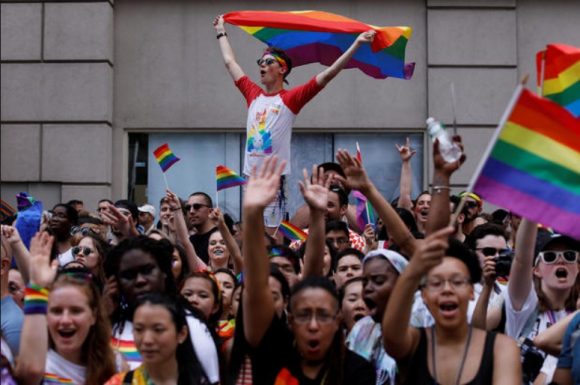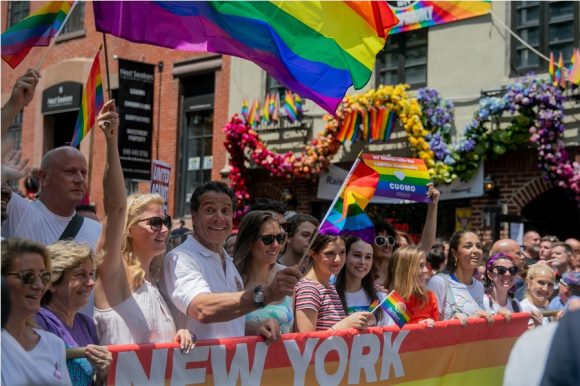Dear Commons Community,
Stanley Fish, a former professor of English and Law at Duke University, now a professor of law at Florida International University, and a visiting professor at Cardozo Law School of Yeshiva University, has written extensively in the past about the plight of the humanities. In his latest essay, Stop Trying to Sell the Humanities: Arguments that they’re useful are wrong, anti-humanistic, and sure to backfire, that appeared in The Chronicle of Higher Education yesterday, he examines every rationale as to why the humanities are important and then shreds it. He saves his most critical comments for the digital humanities enthusiasts who are chasing “fool’s gold.” Below is an excerpt:
“The justification of the humanities is not only an impossible task but an unworthy one, because to engage in it is to acknowledge, if only implicitly, that the humanities cannot stand on their own and do not on their own have an independent value. Of course the assertion of an independent value and the refusal to attach that value to any external good bring us back to the public-relations question: How are we going to sell this? The answer is. again, that we can’t.
What then to do, and who is to do it? This a political rather than an educational or philosophical question; it’s a question about the levers of power, about what persons or groups are situated in a way that might make their championing of the humanities effective, might lead us to receive more funds and more respect. Certainly we cannot expect some career politician to be preternaturally attuned to our interests. We can’t assign legislators to read books defending the humanities and trust that they will come out on the right side, that is, on our side.
The only hope (and it is a slim one) resides in the efforts of senior administrators, administrators with a firm and unshakable understanding (modeled on the understanding of Oakeshott, Newman, Aristotle, Max Weber, Immanuel Kant) of the academic enterprise and a resolve to protect it no matter what forces — political, budgetary, cultural — are arrayed against it. In academic institutions as in most others, those at the top of the administrative ladder set the agenda and establish the spirit. It is no exaggeration, I think, to say that humanities faculties today are dispirited. Only administrators who assume an almost military stance and promise to lead us into sustained battle can be the agents of revival. Do you know any?
I cannot conclude without naming one source of renewal and revival that has recently offered itself. I am thinking of the digital humanities, which promise both to improve our traditional interpretive activities and to do so in a way that will in itself constitute their defense because it will bring humanities activities in line with the more culturally privileged activities of science and mathematics.
This is fool’s gold, for several reasons. First, the digital humanities cannot make good on the claim that most recommends them to traditional humanists, the claim that data mining will provide a surer basis for the interpretation of texts — literary, historical, legal, whatever. It is true, as digital humanists argue, that a corpus that has been digitized can then be searched for patterns the naked eye could never discern — frequency patterns, contiguity patterns, collocation patterns (words that appear together). The problem is that once such patterns have been uncovered, there is no legitimate route from them to the interpretation of texts. Given the limited number of letters in the alphabet and the limited number of ways they can be combined, it is inevitable that pattern-regularities will emerge. The trick is to determine what, if anything, they mean, and the trick cannot be performed without a prior determination that someone is using them to send a message. Without that information, which the data cannot by itself deliver, the patterns will just sit there conveying nothing but their own shape.
Think of puffs of smoke seen on a distant ridge; they could be just puffs of smoke, they could be smoke signals. How do you know? Not by just looking at them; it is only when you are persuaded — not by the data but by extratextual information — that a particular someone has designed the sequence that you will ask what message that someone might have wanted to send. Interpretation can’t get started without the prior identification of an intentional agent, and brute data, no matter how it is sliced and diced, cannot produce that identification by itself. So when the considerable machinery of the digital humanities is cranked up, the product it generates is interpretively inert.
But there is an even deeper problem with the digital humanities: It is an anti-humanistic project, for the hope of the project is that a machine, unaided by anything but its immense computational powers, can decode texts produced by human beings. For it to work, the project requires a digital dictionary — a set of fixed correlations between formal patterns and the significances they regularly convey. There is no such dictionary, although if there were one the acts of readers and interpreter could be dispensed with and bypassed; one could just count things and go directly from the result to a statement of what Paradise Lostmeans. That is the holy grail of the digital-humanities project, at least with respect to interpretation: It wants to get rid of the inconvenience of partial, limited human beings by removing from the patterns they produce all traces of the human. It is an old game forever being renewed, but in whatever form it takes, it’s a sure loser.
Finally, the digital humanities are a version of the “hair of the dog” cure and of the axiom that if you can’t beat them, join them. According to most accounts, the decline of the humanities goes hand in hand with (a) the society’s high valuation of scientific knowledge accompanied by a conviction that only what can be measured is worth knowing, and (b) the growing tendency of both educators and students to support courses that provide a direct path to gainful employment. The digital humanities check both boxes: They are scientistic if anything is; and because they look like other, favored knowledge projects, administrators will bestow on them resources that are withheld from medieval history or Byzantine art.
Richard Grusin, a digital humanist himself, worries that “digital humanities projects might serve as something like gateway drugs for administrators addicted to quick fixes and bottom-line approaches to the structural problems facing higher education today.” When the digital-humanities enthusiasm has cooled down, the structural problems will still be there, and the humanities will still be in danger of expiring. Administrators who pour funds and resources into the digital humanities are complicit in the killing of the humanities. The digital humanities will garner grants and produce some jobs, but its success will be marked by the further eroding of the values that the humanities have always stood for.
So the available justifications as I have surveyed them won’t work, and the surrender of the humanities to their traditional enemies won’t work either, in the long run. Not a pretty picture, and alas, there will be no turn at the end of this essay to a solution everyone else has missed. Aside from urging the reinstatement of severe distribution requirements that have the effect of forcing students into courses they would otherwise choose not to take — those were the days! — I can’t think of a plan that would return the humanities to the prominence they once enjoyed. If my fellow humanists can come up with something, they should speak now, or they may be forever holding their peace whether they want to or not. If things proceed as they have been, in the end we’ll all go the way of Stevens Point.”
Fish’s reference to Stevens Point is the University of Wisconsin at Stevens Point’s recent proposal to eliminate 13 majors, including history, art, English, philosophy, sociology, political science, French, German, and Spanish.
Tony










